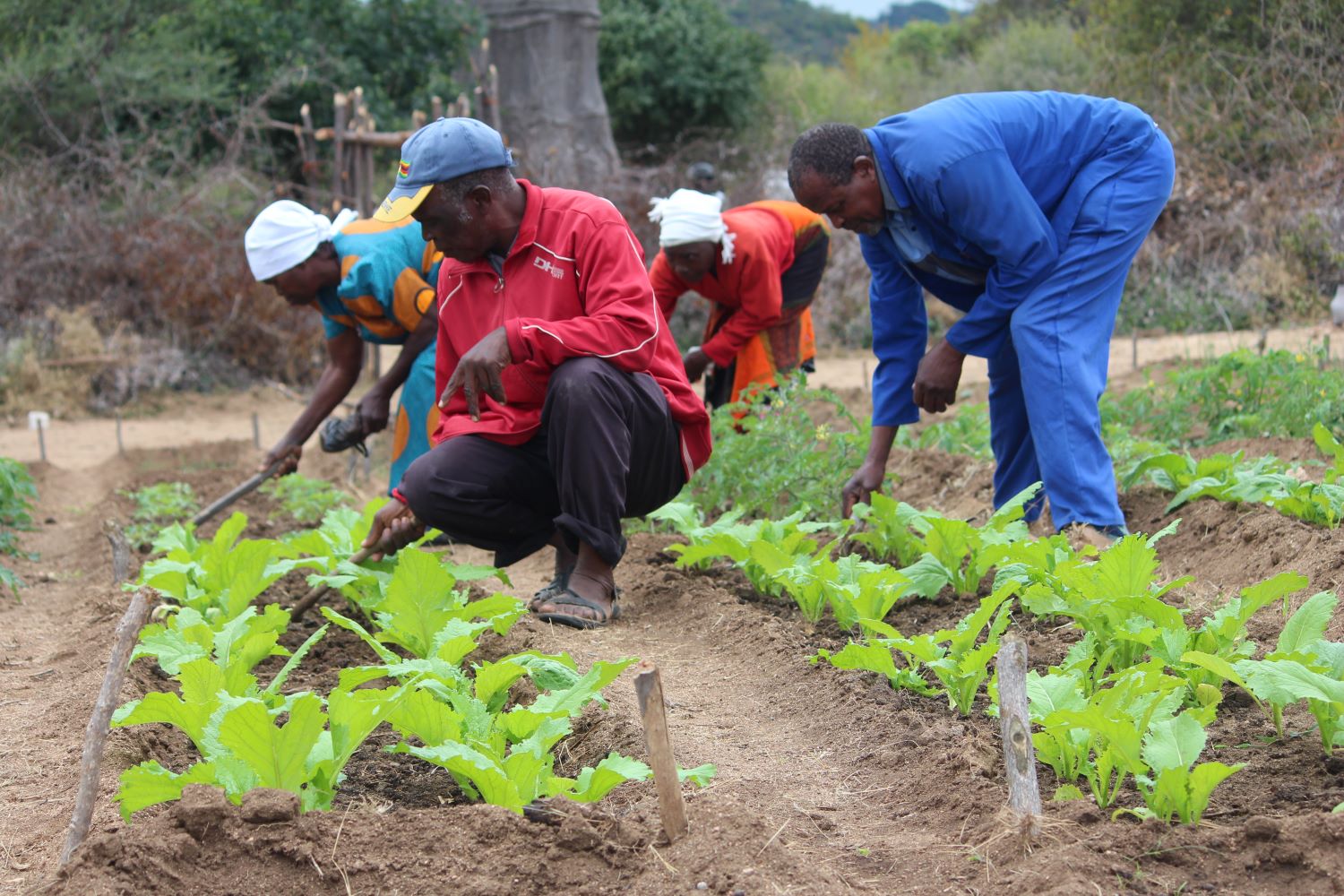SUMMARY OF IMPACTS
The goal and objectives of the FPC Matobo programme endeavored to support resource poor smallholder farmers located in Matobo in their fight towards socio-economic improvement and environmental sustainability. Fambidzanai built on its work that addresses the coming together of right holders and duty bearers through its collaboration with line ministries.
Fambidzanai’s development reach in 2018 largely focused on supporting smallholder farmers (SHFs), capacitating them to increase their livelihood options as well as to exercise their human rights, namely the right to food and the right to clean water.
The failing environment and the rising poverty levels in the district presented a development conundrum to the local communities in the sense that the environment which is diminishing is the fulcrum upon which communities depend on for livelihood support.
Fambidzanai’s LCRB project responded to global, national, and local level challenges through interventions that sought to strengthen agroecology systems, improve sustainable agriculture practices as well as promote market-led organic horticulture production in Matobo.
The project sought to address issues of productivity as well as marketing of the excess produce to create secure and consistent income for the beneficiaries. It also sought to regenerate the environment which is the bedrock for livelihoods in the district.
During the initial phases, the major thrust was towards creating food sufficient households (HH), that are aware of their environment, while actively engaging in regeneration activities for their and future generations’ benefit.
With the increased knowledge came the improved crop yield productivity, and the thrust upon marketing also grew amazingly.
The need for cascading environmental education to all community members and key stakeholders came from the background that natural resources regeneration is significantly much higher in collective action than sporadic individuals within the community.
KEY INTERVENTIONS THAT STEERED CHANGE
Nutrition Garden enterprise
As part of ongoing efforts to address issues of unsustainable income generation in Matobo, 4 by 2Ha market gardens were established in the previous phase which focused on improving smallholder farmer productivity has continued into this new programme phase.
The gardens were established in-line with global trends in green technology in using solar powered irrigation systems.
As part of this phase, a desire to increase productivity of the gardens has initiated successfully after a capacity building training on association building and group dynamics was done.
Through extensive extension support, we sought to significantly lower their production costs, and improve their income due to expansion of production plots, as well as increased season production. Several key activities that improve productivity, as well as increase coordination for markets and investment in assets have been delivered.
There is a notable improvement in income for the already established farmers, who, before the project started, were living under 1USD/per day, but now have shown gross signs of financial growth as the project has gone by.
Most of the set gardens are supplying fresh vegetables locally, to households who live within a radius of 10 kilometres of their garden sites. Esibileni group garden in ward 17 is among the gardens doing well in terms of marketing.
A recent case study showed that on average the lowest generated income per day is more than $1 whilst the highest generated average income per day is close to $10.
As mentioned already, the major lines of marketing (which are satisfactory to most farmers) are the local households within a 10km radius of the garden.
However, other gardens have taken advantage of their proximity to the business centres and have thus established consistent markets with restaurants at the centres. Zimiseleni Garden is supplying their horticulture produce to Maphisa towns as well as local mines and canteens close by.
Small Grain Production
The district of Matobo and the region at large is vulnerable to frequent droughts, poor depleted soils, climate change and farmers have limited knowledge of climate variation coping strategies.
Vulnerability in these communal areas has been epitomised by high percentage of food insecure populations.
Small livestock and conservation farming are some of the proved interventions for such areas.
During the beginning of the 4th quarter, the programme supported communities with seed starter packs in the form of 2kg millet, 2kg sorghum, and 2 kg cowpeas for the beneficiaries of the small grain programme. Planting was done on 0.3Ha plots by each farmer using the conservation farming approach.
In a bid to cope with the unpredictable seasons and the looming dry season, farmers were encouraged to plant with the first rains as well as plant at the latest period for the crop.
A total area of 0.3Ha per farmer was dedicated to the aforementioned crops and this translated to a total of 60Ha under organic conservation agriculture with the value of this production system feeding into the food and nutrition security of the beneficiary household (millet for cereal foods, cowpeas as relish and breakfast and sorghum for food and animal crops) as well as for the indigenous chicken stock feed.
Beekeeping Enterprise
Beekeepers have been progressing and improving their bee keeping project. The final phase of the project involved consolidation of the enterprise and ensuring it influences an increase in productivity while being guided by a business plan that is sustainable.
Most of the critical activities for the group were done after beneficiary identification and registration in ward 16.
For the existing beekeepers, the individual apiaries were also functioning well according to the focus group discussion conducted with the beekeepers.
The beekeepers have noted quite several successes and below are the major ones highlighted.
Beekeepers have been equipped with the necessary skills in honey processing and marketing.
They have managed to sell their honey produce and its by-products (as wax and candles)
A honey processing centre was constructed through the project.
A constitution to guide operations at the processing centre has been developed through the help of Fambidzanai and other external consultants.
Our future plan is to buy unprocessed organic honey from the community members who are not part of the project to increase their stocks and also utilise their processing centre through the sale of vegetables and other garden produce.
The major challenges that the beekeepers have faced was poor colonisation of hives due to the tenacious heat waves which resulted in colonies moving out of the apiary.
This in-turn resulted in shrinking of the sizes of apiaries leaving a few hives to be shared by a bigger number of people. Also, due to the expansion of personal apiaries, the participation of people in group apiaries have significantly decreased.
To curb the major challenge of poor colonisation beekeepers are trying to provide supplementary feeding for the bees but little success has been made since the supplementary feeding crops were also affected by the heat.


